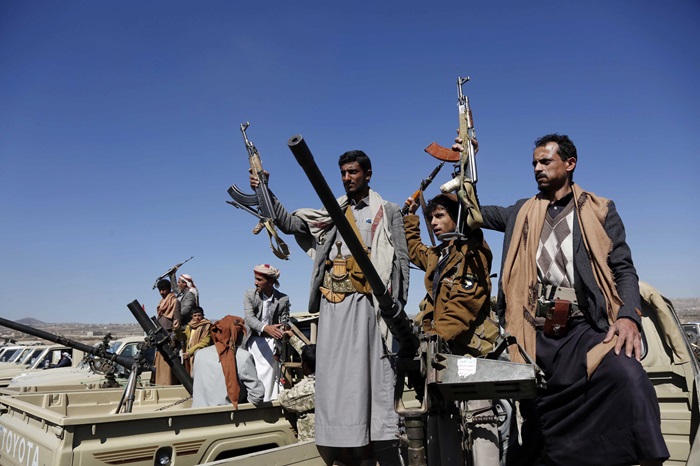
By Adnan Rehmat
An unexpected drone and missile attack by Iran on targets inside Pakistan on January 16, 2024, and Islamabad’s angry diplomatic reaction have added a potentially new destabilizing dimension in the already deadly situation in the Mideast. If not handled properly it may have potentially damaging geopolitical and geostrategic consequences for South Asia that as a region was largely war-free for now.
Pakistan and Iran share an often porous 900 km border and an ethnic population of Baloch people on both sides. Seven million ethnic Baloch live in the Balochistan province in Pakistan and two million in the Sistan-Balochistan province in Iran. The majority Baloch demographic on the Pakistan side are Sunni Muslims and Shia Muslims on the Iran side – reflecting the overall general sectarian majorities in the two countries.
This separate religious sectarian divides in Pakistan and Iran are reflected in sectarian-focused militancy by outlawed militant groups based on both sides that have been operating in each other’s countries. These groups fighting mainly security forces of their own countries as part of ideologically driven resistance often support each other, finding common cause in fighting their own state.
This covert support among non-state actors ends up fueling diplomatic tensions between Tehran and Islamabad who blame each other for not doing enough to stamp out militancy support against them from militant groups finding sanctuary in the other state.
On the Iran side, two Sunni militant groups fighting Shia Tehran that draw low visibility support from Pakistan based groups fighting Islamabad include Jaish ul-Adl [Army of Justice] and Jundallah [Soldiers of Allah]. It was against alleged Jaish al-Adl targets in Pakistan that Iran rained missiles and drones on January 16, 2024.
Jaish -al-Adl is an Iranian Sunni Salafi separatist militant organization that operates mainly in Sistan-Balochistan region bordering Pakistan. It was founded in 2012 by members breaking away from Jundallah, also a Sunni Iranian group that had been considerably weakened by the capture and hanging of its charismatic leader Abdulmalik Regi in 2010.
Jaish al-Adl is fighting for a free Sistan-Balochistan and for greater rights of Baloch people on both sides of the border, hence its support among outlawed Pakistani militant groups based in Pakistani Balochistan province.
Jundallah, the parent faction of Jaish, is also a Sunni Salafi militant organization seeking a unified Balochistan state comprising regions dominated by nine million ethnic Baloch on both sides of the Pakistan-Iran border. Also declared a terrorist group by both Iran and US, Jundallah claims to have killed up to 400 Iranian military personnel. Once a kinetic force, its operations were scaled back dramatically after its founder Regis was captured and killed over a decade ago. It once boasted of support from Saddam Hussein and Al Qaeda.
On the Pakistani side, the province of Balochistan has been a hotbed of insurgency and revolt by Baloch nationalists and Islamist militants against the governments of Pakistan and Iran. The conflict has witnessed several phases over the past few decades with hundreds of casualties and continues to date.
The key Pakistan-based Baloch separatist groups involved in this conflict include the Balochistan Liberation Army, the Balochistan Liberation Front, Lashkar-e-Jhangvi and Sipah-e-Sahaba. The Pakistani military has been fighting these separatist groups in Balochistan and in its cover exercises huge influence over political matters in the province that often generates popular resentment, including support for the militant groups.
Militant groups in both countries, often working in concert, are at times able to simultaneously unnerve Tehran and Islamabad. The native insurgencies that often collaborate across borders sometimes generates angry rebukes from the two capitals accusing the other side of not doing enough to stamp out the groups responsible for them.
The main concern for South Asia is the fear that the hot pursuit of targets by Iran and Pakistan in each other’s territories may flare up and conflate with the ongoing Mideast crisis and bring an unwanted state-involved war into the region. Pakistan already has tense ties with three of its four neighbors – India, Afghanistan, Iran and China – and it cannot afford to allow a tense bilateral moment to morph into a regional conflagration that may escalate.
For now, Islamabad has done well by exercising restraint and restricting its riposte to Iran’s hostile act. It would do even better by getting its foreign minister to engage with his counterpart in Iran so that both sides can ensure that diplomats, not generals call the shots here and long-term political solutions are found to political problems.
South Asia is already a cauldron of cold war varieties – from India-Pakistan, Afghanistan-Pakistan, Maldives-India and India-Sri Lanka cornucopia of diplomatic tensions. All these countries have good ties and strong diplomatic clout with Tehran in a Middle Eastern neighborhood where Iran is not popular. It is in their, as well as South Asia’s, interests to push diplomacy upfront to prevent the Iran-Pakistan flare-up from becoming the perfect opportunity for external actors to expand the Middle Eastern conflict to South Asia.
Adnan Rehmat is an analyst based in Islamabad.
Factum is an Asia Pacific-focused think tank on International Relations, Tech Cooperation, and Strategic Communications accessible via www.factum.lk.
The views expressed here are the author’s own and do not necessarily reflect the organization’s.
